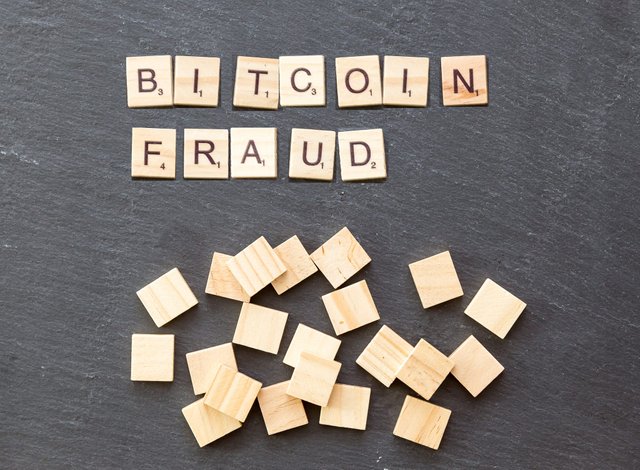When White Collar Crime, Social Media, Cryptocurrency, and Celebrity Collide in the Cyber Age

The recent fines levied against the music producer DJ Khaled and the fighter Floyd Mayweather for promoting a cryptocurrency without telling their followers that they were being paid underlines an unusual intersection of technology, celebrity, and social media. With the advent of cryptocurrency and ICOs, the decision by the Securities and Exchange Commission (SEC) to step forward and bring charges against individuals for cryptocurrency violations marks a new chapter in the ever-evolving world of white collar crime. While celebrity promotions may have been overlooked in the recent past, this action by the SEC signals to well-known personalities and online influencers that they may need to become more familiar with SEC guidelines before promoting the newest flavor of cryptocurrency.
Those Risky ICOs
At this point, it should come as no surprise to anyone that cryptocurrencies are one of the riskier investments out there. In 2018, the volatile nature of Bitcoin and a slew of other altcoins reminded us of the old gambling adage that you should only play with an amount “that you are willing to lose.” Furthermore, on the top of this heap of risky investments is the ICO or initial coin offering. ICOs are essentially launch parties for cryptocurrencies which oftentimes have no workable product backing them up. Indeed, many companies have launched ICOs based on little more than an intriguing white paper and the desires of starry-eyed investors looking to make a quick buck. Recent figures estimate that approximately 85% of ICOs as scams.
Does anyone remember former NBA star Dennis Rodman sporting a PotCoin t-shirt on his way to the summit in Singapore between the United States and North Korea last June? If you purchased some PotCoin just before Rodman’s trip, you would have benefited from a spike in value due to Rodman’s shameless promotion. PotCoin, however, has trended downward since that time from 0.0965 in June down to $0.0113 currently. Rodman, however, was at least savvy enough to admit that PotCoin had paid for his trip to Singapore while he was promoting the brand. The SEC is concerned that many of these celebrities are presenting themselves as unbiased rather than as paid endorsers of the product like Dennis Rodman.
Crypto Climate Change
As recently as 2017, a number of other celebrities such as Paris Hilton and Lionel Messi used their star power to promote different ICOs without disclosing that they were being paid. Apparently, the SEC is no longer prepared to look the other way. Both the fighter Floyd Mayweather and the rapper/music producer Khaled Mohamed, or DJ Khaled as he’s known to most people, incurred heavy fines from the SEC for promoting an ICO without disclosing that they were paid spokespeople for the company. In this instance, they were paid $100,000 and $50,000 respectively by the company Centra Tech to plug their virtual currency offering.
Mayweather used his vast Twitter following to drum up support by tweeting, “Centra's (CTR) ICO starts in a few hours. Get yours before they sell out, I got mine.” In addition to promoting Centra, Mayweather also touted two other cryptocurrencies without mentioning anything about being paid $200,000 for those efforts either.
DJ Khaled, for his part, used a number of different social media channels such as Instagram and Twitter to introduce Centra as a “game changer.”
Penalties
As a result of the SEC charges, both men agreed to return the money they were paid as well as additional fines. Mayweather will have to cough up $300,000 in fines in addition to agreeing not to promote any similar ventures for the next three years; DJ Khaled will pay a $100,000 penalty and faces a two-year ban from securities promotions. Naturally, they are also required to make full disclosures about any such endorsements in the future.
What Does the SEC Action Signify?
Although using celebrities has become a fairly common fundraising ploy for early stage tech companies, these charges filed by the SEC are significant for a couple of reasons. They represent the first time that the SEC has bothered to charge individuals for failing to disclose their roles as paid spokespeople. In addition, the SEC’s action also signifies that any cryptocurrencies sold through ICOs are designated securities and, therefore, subject to federal securities laws.
Due to the high incidence of cryptocurrency scams, the SEC’s latest action may be welcome news to those who may have found themselves on the wrong side of a fraudulent ICO. The industry-wide downturn in cryptocurrency prices coupled with the SEC shutdown of many recent offerings has certainly put the brakes on an industry that showed no signs of slowing down in 2017.
Social Media as Conduit for White Collar Crime
Another intriguing aspect to the SEC ruling concerns how white collar crime has evolved in the 21st century. Traditionally, securities fraud usually involved high-level executives using inside information to make millions off of illegal stock purchases. In the technology age, however, white collar crime has extended to online activity, often involving the use of social media.
Infractions such as the company disclosures by Elon Musk or the cases of DJ Khaled and Floyd Mayweather underscore how high-profile individuals can run afoul of federal securities laws for their social media activity.
SEC Turns the Tables
In a twist of irony, the SEC recently used social media to warn the public that they have many cases pending against celebrity influencers; it appears that their crackdown on the use of social media for fraudulent purposes has only gotten started.